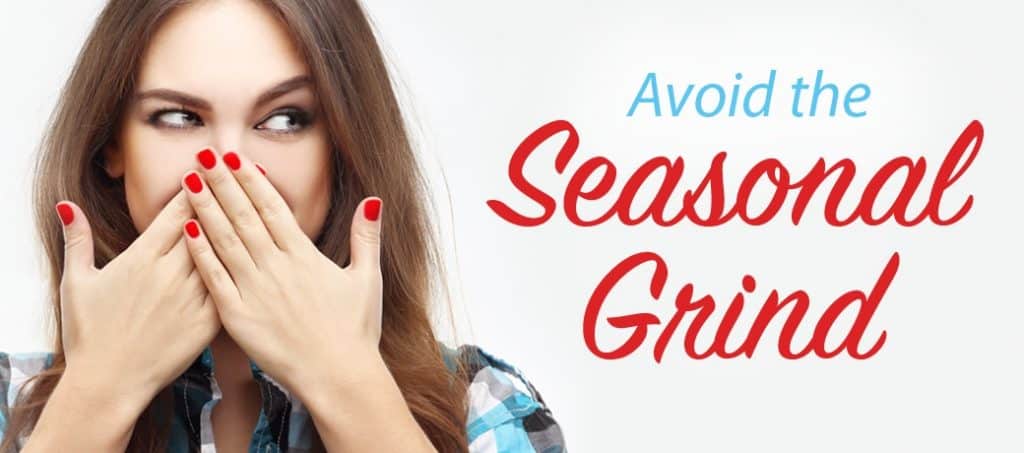Stressed Out: Can Stress Affect Your Teeth?

You have too much to do at work. You have to juggle a million tasks between your children, your spouse, and errands — not to mention your mother-in-law is in town for the weekend. We all have those days, and those days can add immense stress to your life. That stress affects more than just your emotional health; it physically alters you as well. Your mouth already experiences daily wear and tear that you need to prevent as much as possible. If you are too stressed, this adds another layer of factors fighting against the health of your mouth. It starts before you even realize — you are stressed out thinking about everything you need to do, and then you notice you’ve been clenching your teeth for the past few minutes. Depending on how you handle stress, you may be doing this multiple times per day, which takes a toll on your mouth. Signs of Stress Impacting Your Oral Health 1. Poor At Home Oral Hygiene When we are stressed self-care may become less important. We can start over indulging in comfort foods high in carbs, sugar, and caffeine. A poor diet and ignoring our regular oral hygiene routine can lead to plaque buildup, caries, and even tooth loss. 2. Dry Mouth Saliva keeps teeth moist, helps fight bacteria, and helps removes food particles from your teeth. But when you are trying to manage increased stress, your saliva production can be reduced. This can result in increased plaque buildup and a higher likelihood of dental problems. 3. Clenched Jaws The constant muscle tension in your jaw that can result from chronic stress can cause TMD or temporomandibular disorder. This condition causes pain in your temporomandibular joint (TMJ), your jaws, and around your ears. You may also experience difficulty opening your mouth or chewing food or even hear a clicking noise. If left untreated, bruxism can also destroy dental restorations (fillings, crowns, bridges, etc.) that you’ve had done, creating more pain and costing more money. 4. Teeth Grinding Teeth grinding or bruxism is a common symptom of stress or anxiety. This is often an unconscious action so many people are unaware of their teeth grinding, especially if they are grinding their teeth while they sleep. Grinding teeth results in significant wear and tear on your teeth. This can lead to damage to the enamel, chipped teeth, loose teeth, increased sensitivity, and pain in your temples. 5. Decreased Immune Response Stress often has a detrimental effect on your immune system. A reduced immune response makes it harder to fight off infections, and high levels of cortisol ( a hormone related to stress) lead to protein production in the gums causing inflammation and increasing the likelihood of developing gum diseases like gingivitis and periodontitis. 6. Cold Sore Blisters Cold sores are caused by the herpes simplex virus. Many people can go for months without dealing with a cold sore however increased stress is a common trigger. Cold sores typically appear on the lips or corners of the mouth, in some instances they can also appear on your gums leading to difficulty brushing and flossing. How to Prevent Teeth Grinding and Clenching Since one of the main causes of teeth grinding and clenching is stress, the best way to stop is to reduce your stress. Hold on — put down that glass of chardonnay or moonshine you have after work to unwind (alcohol increases the likelihood of teeth grinding while sleeping). Here are some stress-management techniques that will help reduce your overall stress. Exercise. Not only does this release endorphins to help combat stress, but at the end of the day, you’ll be too tired to have stress-inducing thoughts. Autogenic relaxation. This method involves “commanding” your body to relax. This takes a lot of practice but can be very effective once learned. Learn more about autogenic relaxation here. Visualization. Trying to use all five of your senses, imagine a scenario that is relaxing. For example, if you imagine yourself in a forest, listen to the sway of the branches, feel the warm light creeping between the trees, and note the scent of pine needles. Listen to your favorite music. Classical is always a reliable genre to relax to, but listen to the type of music that helps you unwind. These techniques will only work if you allow them to. When using them, ensure you have an open mind and allow yourself to relax. Everyone is different, and it will take time to find what relaxes you, as well as mastering the technique itself. The benefits of stress-management strategies will not only help your teeth-grinding issue but also provide benefits for many other health issues you may be experiencing. Other Stress Reducing Tips to Consider If you notice throughout the day that you are still clenching, stick the tip of your tongue between your teeth. This will force you to relax your jaw muscles. According to the TMJ Association, take anti-inflammatory medicine (such as ibuprofen) to help with swelling and pain until you can get your teeth grinding and TMJ/TMD under control. Check with your physician to see if you are able to take anti-inflammatory medicines. Place a warm washcloth on your jaw before you go to bed to help relax your muscles. If you try these stress-relieving techniques and are still experiencing pain related to clenching and grinding, your Palmdale, CA dentist can do an examination to determine the best course of action. In most cases, your dentist can create a mouth guard/splint to prevent clenching and grinding. Additional Dental Services May Include: Managing pain with a special diet Stretching exercises Anti-inflammatory medications For more information about stress and your dental health, request an appointment at AV Sierra Dental Center by calling 661.202.3542 today. Reference: Stress management. (n.d.). Retrieved July 12, 2016, from https://www.mayoclinic.org/healthy-lifestyle/stress-management/in-depth/relaxation-technique/art-20045368 Teeth Grinding (Bruxism): Causes and Treatments. (n.d.). Retrieved July 12, 2016, from https://www.webmd.com/oral-health/guide/teeth-grinding-bruxism TMJ Association, Ltd. (n.d.). Retrieved July 13, 2016, from https://www.tmj.org/site/page?pageId=257
Teeth Grinding (Bruxism) and Holiday Stress

Protect Your Teeth From Holiday Stress: Avoid the Seasonal Grind The holiday season is a time of year that comes with many things: visits from loved ones, weekly parties, a multitude of shopping trips, long hours spent in the kitchen, and stress-induced bruxism. Stress isn’t always a bad thing; in fact it can even be good in small doses. It can spur excitement, joy, and eager anticipation, and it can even function as that extra bit of motivation that you need to get everything on your to-do list done. Even when the outcome of the stress you are experiencing is positive, the effects it has on you physically can be negative. What Is Bruxism? The gradual onset of mild to moderate head and neck aches, jaw pain, and sensitive teeth can signal that stress is beginning to take a toll and that you might be suffering from a condition called bruxism. Bruxism is a condition in which you clench and grind your teeth throughout the day and night. The clenching and grinding can become so hard and loud that it can be heard by partners and loved ones within the affected individual’s living space. Some individuals only suffer from short bouts of bruxism. But if you begin to experience any of the following associated symptoms with regularity, you should call and set up an appointment with our provider immediately. Signs and symptoms that indicate you could be suffering from bruxism include: Worn tooth enamel Face pain rooted at the jawline Earache-like pain Headache in the temple area Sores from chewing or biting the inside of your cheek Grinding teeth during sleeping hours If left untreated, bruxism can lead to more serious conditions that may require extensive and expensive care to resolve. These conditions include: Damaged teeth: Individuals who suffer from bruxism end up clenching and unclenching their teeth all throughout the night. The pressure they put on their jaws can equate to 250 pounds or more worth of force, which can cause extreme wear and tear on teeth. Tooth sensitivity is the least of the repercussions this type of pressure can have on oral health. Chipped, cracked, and severely worn teeth can result, requiring extensive restorative treatments. TMJ: TMJ is disorder of the temporomandibular joints that causes pain in the jaw, head, and neck areas. It can cause the jaw muscles to spasm and make it difficult for sufferers to open and close their mouths normally. Treatments may include Botox injections, medications that relax muscles, and protective nighttime mouth guards. Sleep disturbances: Bruxism ranks as the third most frequent abnormal sleep behavior. Some suffers become aware of their condition after seeking out help for severe sleep deprivation and exhaustion. They have no idea that they have been grinding their teeth at night, nor that it is the cause of their daytime drowsiness. Who’s at Risk? Risk factors that increase your likelihood of suffering from bruxism include: Age: Bruxism is most common in children but can extend into adulthood. Stress level: If you have a high level of stress or an increase in anxiety, you may begin to experience the signs of bruxism. Substance intake: Smoking tobacco, drinking caffeinated and alcoholic beverages, or taking medications that have stimulants in them may increase the risk of bruxism. Diagnosing Bruxism If your dentist suspects that you have bruxism, he or she will perform an exam and evaluate you for the following: Damage to your teeth, the bone that supports them, and the soft tissues inside your mouth Pain and tenderness in the jaw and mouth area Common dental abnormalities that are often indicators, like broken, worn-down, or missing teeth and poor tooth alignment If you have signs of bruxism, our dentist may choose to look for changes that may have taken place over the course of your visits. Your exam may include x-rays and questionnaires. Treatments In the case of children affected by bruxism, treatment is rare. The majority of children age out of bruxism. Adults who grind their teeth enough to cause damage and inflict pain have treatment options that include dental protection devices, such as mouth guards and splints, and corrective dental treatment plans designed to align teeth properly. Realigning teeth may require braces and, in severe cases, oral surgery. If stress is at the root of a patient’s bruxism condition, our dentist will refer them to a therapist that specializes in stress management and behavior therapy. In some cases, medications such as muscle relaxants may also be prescribed. The holiday season is a time of year to be enjoyed. You don’t have to let the excitement and anticipation take an unpleasant toll. If you are experiencing any of the symptoms that may indicate you are suffering from bruxism, set up an appointment with Drs. Jason Oh and Lucia Chia at your Palmdale dental office today.


